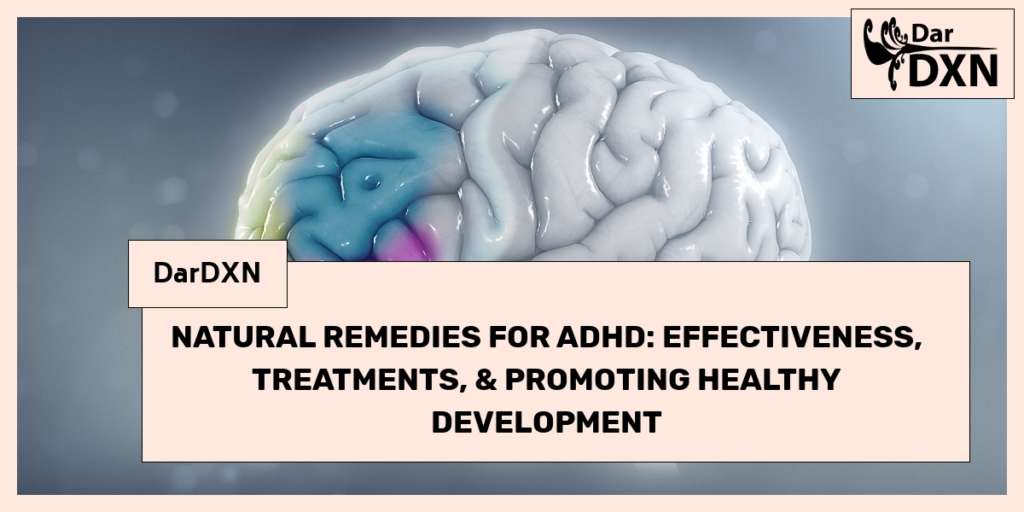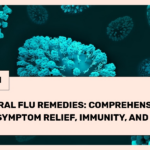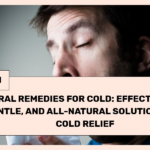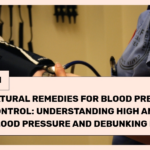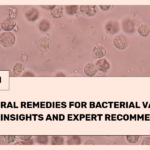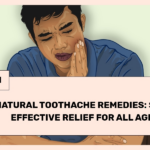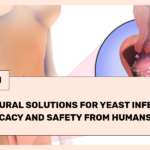Potential alternatives to traditional medications, natural remedies for ADHD have gained attention. They are believed to effectively treat both children and adults with ADHD. Natural herbs often heal ADHD and promote healthy development in toddlers, kids, and teenagers, empowering individuals with ADHD and providing hope for managing symptoms. Understanding the potential side effects, recommended dosages, and possible interactions with other medications is important. Addressing common misconceptions about natural remedies for ADHD is also necessary.
What are natural remedies for ADHD and their effectiveness?
“Dietary changes can help improve ADHD symptoms by avoiding processed foods, artificial additives, and sugar, and focusing on a balanced diet rich in fruits, vegetables, and whole grains. Some studies suggest that certain supplements like omega-3 fatty acids, zinc, and magnesium may also be beneficial. Behavioral therapy, such as cognitive-behavioral therapy and mindfulness techniques, can help manage ADHD symptoms.
Regular exercise, including activities like running, swimming, or playing sports, has been shown to improve focus and reduce hyperactivity in individuals with ADHD. It can release excess energy and improve overall well-being.
It is recommended to consult with a healthcare professional before trying any new treatments, as natural remedies may not work for everyone. Natural remedies should not replace prescribed medications but can be used as complementary therapies to enhance overall ADHD management.”
How can natural remedies treat adult ADHD?
“Addressing underlying imbalances in the body and mind, natural remedies can help manage symptoms of adult ADHD. These remedies include lifestyle changes, dietary modifications, and herbal supplements.
To improve focus and reduce impulsivity, regular exercise, adequate sleep, and stress management techniques are recommended as lifestyle changes. A balanced diet with omega-3 fatty acids, vitamins, and minerals supports brain health and cognitive function. Herbal supplements like ginkgo biloba, lavender, and chamomile have calming effects and reduce anxiety associated with ADHD.
It is important to note that natural remedies may not be as effective as prescription medications for severe cases of adult ADHD. Therefore, consulting with a healthcare professional before starting any natural remedies is recommended to ensure safety and appropriateness for individual needs.
In summary, natural remedies can be used as a complementary approach to manage adult ADHD symptoms. However, they should be used in conjunction with other treatment strategies, such as therapy and medication, for optimal results.”
What is the potential of natural remedies for ADHD in humans?
Natural remedies for ADHD in humans show promise but require further research. Dietary changes, herbal supplements, and behavioral therapies have positive effects in managing symptoms. However, these remedies are not a substitute for medical treatment and should be used as complementary approaches. Effectiveness varies between individuals. Safety and long-term effects are not well-established, and more studies are needed. Consult a healthcare professional before trying natural remedies for ADHD.
How can natural herbs heal ADHD?
“Managing the symptoms of ADHD can potentially be aided by natural herbs, although they cannot cure the condition. Ginkgo biloba, ginseng, and passionflower are among the herbs traditionally used for their calming effects, which may improve focus and concentration in individuals with ADHD. These herbs contain compounds that can enhance neurotransmitter activity and regulate brain function. However, scientific research on their effectiveness for ADHD is limited and inconclusive. It is crucial to consult with a healthcare professional before using herbs, as they can interact with medications and have side effects.
ADHD is a neurodevelopmental disorder characterized by difficulties in sustaining attention, hyperactivity, and impulsivity. It is typically managed through a combination of medication, therapy, and lifestyle modifications. Natural herbs can be used as complementary treatments, but they should not replace conventional medical interventions. Working with a healthcare provider is essential to develop a comprehensive treatment plan that addresses the individual’s unique needs and ensures their safety and well-being.”
What are gentle natural remedies for ADHD in kids?
Incorporating a healthy diet, regular exercise, and ensuring enough sleep are gentle natural remedies for ADHD in kids. They improve focus, reduce hyperactivity, and promote overall well-being. A diet rich in fruits, vegetables, whole grains, and lean proteins provides essential nutrients for brain health. Avoiding processed foods, artificial additives, and sugary snacks helps manage symptoms. Regular exercise releases excess energy and improves concentration. Encouraging activities like yoga or meditation promotes relaxation and mindfulness. Establishing a consistent sleep routine improves attention and reduces impulsivity. Creating a calm and structured environment at home is also beneficial. Consult with a healthcare professional for a comprehensive treatment plan that may include therapy or medication if necessary.
What are effective natural remedies for adults with ADHD?
“Regular exercise can improve attention and concentration by increasing dopamine levels in the brain. Activities like aerobic exercises, yoga, or martial arts are beneficial for adults with ADHD.
A healthy diet with omega-3 fatty acids, vitamins, and minerals supports brain health and reduces ADHD symptoms. Foods rich in omega-3 fatty acids, such as fatty fish, walnuts, and flaxseeds, positively impact attention and cognitive function.
Mindfulness techniques like meditation or deep breathing exercises help adults with ADHD manage stress and improve focus. These techniques promote relaxation and enhance awareness of thoughts and emotions, aiding in attention and impulse regulation.
Working with a healthcare professional is important for individuals with ADHD to develop a comprehensive treatment plan. This plan may include medication, therapy, lifestyle changes, and natural remedies.”
How can natural remedies promote healthy development in toddlers with ADHD?
Natural remedies can promote healthy development in toddlers with ADHD by addressing their symptoms and supporting their overall well-being. Dietary changes, nutritional supplements, herbal remedies, and lifestyle modifications can help. For example, a diet rich in omega-3 fatty acids, like fish oil, improves cognitive function and reduces ADHD symptoms in children. Certain herbs, like ginkgo biloba and ginseng, may improve focus and attention. Regular exercise and physical activity benefit children with ADHD by reducing hyperactivity and improving concentration. Adequate sleep and stress management contribute to overall well-being and reduce ADHD symptoms. It is important to note that natural remedies should be used alongside therapy and medication, as recommended by a healthcare professional.
What are the best comprehensive natural remedies for ADHD?
“Comprehensive natural remedies for ADHD include dietary changes, exercise, and herbal supplements. Dietary changes involve avoiding processed foods, artificial additives, and sugar, while increasing the intake of whole foods, fruits, vegetables, and omega-3 fatty acids. Increasing dopamine levels in the brain, regular exercise can improve focus and reduce hyperactivity. Herbal supplements like ginkgo biloba, green tea extract, and passionflower have potential in improving ADHD symptoms. However, consulting with a healthcare professional before starting any herbal supplements is important due to potential interactions with medications or side effects.
ADHD is a neurodevelopmental disorder characterized by inattention, hyperactivity, and impulsivity. While medication is often prescribed, natural remedies are sought by many individuals to complement or replace traditional treatment options.
Dietary changes play a crucial role in managing ADHD symptoms. Eliminating processed foods and artificial additives can reduce hyperactivity and improve attention span. Limiting sugar consumption is recommended as it worsens ADHD symptoms. Including whole foods, fruits, vegetables, and omega-3 fatty acids (such as fatty fish, flaxseeds, and walnuts) positively impact ADHD symptoms. Omega-3 fatty acids improve cognitive function and reduce ADHD symptoms.
Regular exercise benefits individuals with ADHD. Increasing dopamine levels in the brain, exercise improves focus and reduces hyperactivity. Running, swimming, or playing sports positively impact ADHD symptoms. Exercise also promotes better sleep, important for individuals with ADHD as sleep disturbances are common.
Herbal supplements are popular natural remedies for ADHD. Ginkgo biloba enhances cognitive function, green tea extract improves attention and focus, and passionflower reduces anxiety and hyperactivity. Consultation with a healthcare professional is crucial before starting any herbal supplements due to potential interactions with medications or side effects.
In conclusion, comprehensive natural remedies for ADHD involve dietary changes, exercise, and herbal supplements. These approaches manage symptoms and improve overall well-being. Natural remedies should be used in conjunction with professional medical advice and treatment.”
How can natural remedies empower children with ADHD?
Children with ADHD can be empowered by natural remedies that provide alternative methods to manage symptoms and improve overall well-being. Lifestyle changes like regular exercise, a balanced diet, and sufficient sleep can reduce hyperactivity and improve focus. Certain herbal supplements, such as omega-3 fatty acids and ginkgo biloba, have shown potential in improving cognitive function and reducing symptoms. Mindfulness techniques like meditation and yoga can help children develop self-awareness and self-regulation skills. These natural remedies give children a sense of control over their condition and tools to better manage symptoms. However, it is important to note that natural remedies should be used in conjunction with professional medical advice and treatment, as they may not be sufficient to address the complex nature of ADHD.
What are natural remedies that nurture kids with ADHD for positive results?
Natural remedies for kids with ADHD include lifestyle changes, dietary adjustments, and alternative therapies. These aim to reduce symptoms and improve well-being without medication. Effective strategies include regular exercise, a consistent routine, a structured environment, and adequate sleep. Dietary changes involve eliminating artificial additives, preservatives, and food colorings, while increasing nutrient-rich foods. Alternative therapies like yoga, mindfulness meditation, and acupuncture show promise in managing ADHD symptoms. It’s important to note that these remedies may not work for every child with ADHD. Consult healthcare professionals and specialists for a personalized treatment plan.
What are effective natural remedies for addressing ADD and ADHD?
“Lifestyle changes, dietary adjustments, and herbal supplements are effective natural remedies for addressing ADD and ADHD.
To manage symptoms, establish a routine, create a structured environment, and incorporate regular exercise. These changes can improve focus, attention, and overall behavior.
Avoid processed foods, artificial additives, and sugar, as they can worsen symptoms. Instead, consume a diet rich in whole foods, fruits, vegetables, and lean proteins to support brain health and enhance cognitive function.
Promising results have been seen with herbal supplements like omega-3 fatty acids, zinc, magnesium, and ginkgo biloba. Omega-3 fatty acids, found in fish oil, have been linked to improved attention and behavior. Zinc and magnesium are essential minerals that support brain function, while ginkgo biloba can enhance memory and cognitive abilities.
It is important to consult with a healthcare professional before starting any new treatment, as natural remedies may not work for everyone. Additionally, use these remedies in conjunction with other interventions, such as therapy or medication, for optimal results.”
How can natural remedies promote balance and focus in 12-year-olds with ADHD?
Natural remedies can promote balance and focus in 12-year-olds with ADHD. Certain herbs like ginkgo biloba, ginseng, and green tea improve cognitive function and attention span. Omega-3 fatty acids found in fish oil support brain health and reduce ADHD symptoms. A well-balanced diet including whole grains, fruits, vegetables, and lean proteins provides essential nutrients for brain function. Regular exercise and physical activity help release excess energy and improve focus. Creating a structured routine and providing a calm and organized environment help children with ADHD stay focused and balanced. It is important to note that natural remedies should be used in conjunction with traditional ADHD treatments and under the guidance of a healthcare professional.
What are gentle solutions for young minds with ADHD in 5-year-olds?
ADHD, or attention deficit hyperactivity disorder, is a neurodevelopmental disorder that affects children’s ability to pay attention, control impulsive behaviors, and regulate their activity levels. For young children with ADHD, providing gentle and supportive strategies can help them manage their symptoms effectively. Creating a structured environment can help children with ADHD feel more organized and reduce distractions. This can be done by establishing consistent routines, setting up clear rules and expectations, and providing visual schedules or charts to help them understand and follow daily activities. Breaking tasks into smaller and manageable steps can make them more achievable for children with ADHD, as they may struggle with focusing on longer tasks. Regular breaks and physical activity can also help children release excess energy and improve their ability to concentrate. Positive reinforcement, such as praise or rewards, can motivate and encourage good behavior. Consulting with a healthcare professional or specialist to develop an individualized plan that meets the specific needs of the child is important, as every child with ADHD is unique.
What is the efficacy of natural remedies for ADHD?
The efficacy of natural remedies for ADHD is uncertain and not well-supported by scientific evidence. Positive effects from using natural remedies, such as dietary changes, herbal supplements, or alternative therapies, may be reported by some individuals. However, there is limited research to support their effectiveness. Medication, specifically stimulant medications like methylphenidate or amphetamines, is the most widely studied and recommended treatment for ADHD. Extensive research has shown these medications to be effective in reducing ADHD symptoms in the majority of individuals. Behavioral therapy, such as cognitive-behavioral therapy (CBT) or parent training, is also recommended as a primary treatment for ADHD. Before considering any natural remedies for ADHD, it is important to consult with a healthcare professional. Natural remedies may interact with other medications or have potential side effects. They should not be used as a substitute for evidence-based treatments, but rather as complementary approaches.
How can natural remedies calm ADHD and anxiety?
Exercise, dietary changes, and herbal supplements can calm symptoms of ADHD and anxiety. Regular exercise releases endorphins, improving mood and reducing anxiety. It also increases focus and attention, benefiting individuals with ADHD. Dietary changes, like reducing sugar and processed foods, and increasing omega-3 fatty acids from fish and nuts, can have a positive impact on symptoms. Herbal supplements such as lavender, chamomile, and valerian root have calming effects on the nervous system, reducing anxiety. However, natural remedies may not be as effective as prescription medications for severe symptoms of ADHD and anxiety. Always consult with a healthcare professional before starting any natural remedies to ensure safety and appropriateness for individual needs.
How can natural remedies help find balance for ADHD and depression?
Natural remedies can help find balance for ADHD and depression. They provide alternative and complementary approaches to managing symptoms and promoting overall well-being. Lifestyle changes, including regular exercise, a healthy diet, and sufficient sleep, have been shown to improve symptoms of both conditions. Certain supplements and herbs, such as omega-3 fatty acids and St. John’s wort, have potential benefits for ADHD and depression. Mind-body practices, like meditation, yoga, and acupuncture, can also reduce stress and improve mental health. It’s important to note that natural remedies can be used as adjuncts to medication and therapy, not as replacements. Before starting any natural remedies, it’s recommended to consult with a healthcare professional to ensure safety and appropriateness for individual needs.
What is a holistic approach to treating ADHD and ODD with natural remedies?
“A holistic approach to treating ADHD and ODD with natural remedies involves addressing the underlying causes of these conditions. It focuses on the whole person, considering their physical, mental, and emotional well-being. Natural remedies include dietary changes, nutritional supplements, herbal medicine, exercise, mindfulness practices, and behavioral therapies.
ADHD and ODD are complex disorders influenced by genetics, environment, and lifestyle. The holistic approach aims to identify and address these factors to promote overall health. For example, dietary changes involve eliminating processed foods and reducing sugar and food additives that exacerbate symptoms. Nutritional supplements like omega-3 fatty acids and magnesium support brain health.
Herbal medicine can address specific symptoms. Chamomile and passionflower help calm hyperactivity and improve sleep. Regular exercise reduces restlessness and improves focus.
Mindfulness practices, such as meditation or yoga, benefit managing ADHD and ODD symptoms by promoting relaxation and self-awareness. Behavioral therapies, like cognitive-behavioral therapy, help develop coping strategies and improve social skills.
A holistic approach to treating ADHD and ODD with natural remedies involves a comprehensive and individualized approach. It addresses the root causes of these conditions and promotes overall well-being.”
How can natural remedies promote healthy development in 3-year-olds with ADHD?
Promoting healthy development in 3-year-olds with ADHD can be achieved through natural remedies that address underlying factors contributing to ADHD symptoms. These remedies include dietary changes like reducing sugar and processed foods, and increasing intake of nutrient-rich foods such as fruits, vegetables, and omega-3 fatty acids. Regular exercise and physical activity can also improve focus and reduce hyperactivity. Chamomile and fish oil, among other herbs and supplements, may have calming effects and support cognitive function. It is important to note that natural remedies should be used alongside evidence-based treatments for ADHD, such as behavioral therapy and medication, if recommended by a healthcare professional. Consulting with a healthcare provider before starting any natural remedies is crucial to ensure their safety and appropriateness for the child.
How can natural remedies help navigate teenage years with ADHD?
Natural remedies can be used alongside traditional treatments to manage ADHD symptoms and promote overall well-being. Lifestyle changes, like maintaining a healthy diet and exercise routine, can improve focus and reduce hyperactivity. Certain supplements and herbs, such as omega-3 fatty acids and ginkgo biloba, have shown promise in reducing symptoms. Acupuncture and mindfulness meditation can alleviate stress and improve concentration. It’s important to discuss natural remedies with a healthcare professional and use them in conjunction with therapy and medication. While not a standalone solution, natural remedies are a valuable tool in a comprehensive treatment plan for ADHD.
How can natural remedies empower women with ADHD?
Natural remedies can empower women with ADHD by providing alternative options for managing symptoms. Lifestyle changes, such as exercise, a healthy diet, and stress reduction techniques, can improve overall well-being and reduce ADHD symptoms. Certain herbal supplements, like omega-3 fatty acids and ginkgo biloba, may have potential benefits for individuals with ADHD. These remedies offer a sense of control and allow exploration of different approaches to symptom management. However, it is important to note that natural remedies should not replace prescribed medications or professional medical advice. They can complement traditional treatments to enhance effectiveness. Consult healthcare professionals before trying any natural remedies for safety and effectiveness.
What is the potential of natural remedies for inattentive ADHD?
Natural remedies can effectively manage inattentive ADHD symptoms. Some natural remedies, including omega-3 fatty acids, iron supplements, ginkgo biloba, ginseng, and dietary changes, have shown promising results in improving focus and attention. However, it is important to note that natural remedies may not work for everyone, and their effectiveness may vary. Consult with a healthcare professional before trying any natural remedies, as they can interact with medications or have potential side effects. Natural remedies should not substitute prescribed medications or evidence-based treatments for ADHD. Further research is needed to understand the potential benefits and limitations of natural remedies for inattentive ADHD.
What are real-life experiences of using natural remedies for ADHD from Reddit users?
“Real-life experiences of using natural remedies for ADHD from Reddit users vary widely. Natural remedies such as dietary changes, herbal supplements, and exercise have been reported to reduce symptoms of ADHD, improve focus, and increase overall well-being. However, these experiences are subjective and may not be supported by scientific evidence.
Some Reddit users have reported little to no improvement in their ADHD symptoms with natural remedies. They suggest that medication prescribed by healthcare professionals is more reliable in managing their symptoms and express frustration and disappointment with the lack of effectiveness.
Approach natural remedies for ADHD with caution and consult with healthcare professionals before making any changes to treatment plans. Consider the individual variability in response to these remedies and the potential risks and interactions they may have with other medications or health conditions.”
What are effective natural remedies for managing ADHD symptoms?
Exercise, a healthy diet, and herbal supplements are effective natural remedies for managing ADHD symptoms. Regular physical activity can reduce hyperactivity and improve concentration. Aerobic exercises and activities that require focus and coordination are particularly beneficial. A diet rich in omega-3 fatty acids, vitamins, and minerals supports brain health and reduces symptoms. Herbal supplements like ginkgo biloba, ginseng, and green tea extract have shown potential in improving attention and reducing impulsivity. However, before starting any herbal supplements, it is important to consult with a healthcare professional. They may interact with other medications or have side effects. Implementing strategies such as creating a structured routine, using visual aids, and practicing mindfulness techniques can also be beneficial in managing ADHD symptoms. It is important to note that natural remedies should not replace traditional treatments such as medication or therapy. A comprehensive treatment plan should be developed in consultation with a healthcare professional.
What is the connection between natural remedies for autism and ADHD?
Certain individuals believe that certain natural remedies can help manage the symptoms of both autism and ADHD. However, it is important to note that there is limited scientific evidence to support the effectiveness of these remedies. Commonly suggested natural remedies include dietary changes, nutritional supplements, herbal remedies, and behavioral therapies. These remedies are thought to improve symptoms such as hyperactivity, impulsivity, and inattention. Consult with a healthcare professional before trying any natural remedies, as they may interact with other medications or have potential side effects. Additionally, remember that each individual is unique, and what works for one person may not work for another. Approach natural remedies with caution and consider them as complementary to other evidence-based treatments for autism and ADHD.
How can natural remedies provide hope for childhood ADHD?
Childhood ADHD can find hope in natural remedies that offer alternative, less invasive treatment options with fewer side effects compared to traditional medications. These remedies prioritize overall health and well-being, positively impacting ADHD symptoms. Regular exercise, a balanced diet, and sufficient sleep can reduce hyperactivity and improve focus and attention, effectively managing ADHD symptoms. Certain herbal supplements, like omega-3 fatty acids and zinc, show promise in improving ADHD symptoms. While not a standalone solution, natural remedies can complement other treatments, such as behavioral therapy or medication. Consult a healthcare professional to ensure the safety and appropriateness of natural remedies for the child.
What are holistic solutions for depression and ADHD using natural remedies?
Holistic solutions for depression and ADHD using natural remedies involve lifestyle changes, dietary adjustments, and alternative therapies. These can alleviate symptoms and improve overall well-being. Incorporate regular exercise, stress management techniques, and sufficient sleep into daily routines. Consume a balanced diet rich in whole foods, reduce sugar and caffeine intake, and ensure adequate intake of essential nutrients like omega-3 fatty acids. Alternative therapies, such as acupuncture, herbal supplements, and mindfulness meditation, can also be beneficial. It is important to note that natural remedies should not replace professional medical advice or prescribed medications. Consult with a healthcare provider to develop a comprehensive treatment plan that addresses individual needs and combines natural remedies with conventional treatments if necessary.
How can natural remedies promote focus and attention for inattentive ADHD?
To promote focus and attention for individuals with inattentive ADHD, natural remedies address underlying factors contributing to symptoms. These remedies include lifestyle changes: regular exercise, adequate sleep, and a healthy diet. Exercise increases blood flow to the brain, improving cognitive function and attention. Sufficient sleep allows the brain to rest and recharge, enhancing focus. A nutrient-rich diet, especially with omega-3 fatty acids, supports brain health and improves attention. Certain herbal supplements, like ginkgo biloba and green tea extract, potentially enhance focus and reduce ADHD symptoms. However, it is important to note that natural remedies may not work for everyone. They should be used alongside evidence-based treatments, such as therapy and medication, for optimal results. Consulting with a healthcare professional is crucial to determine suitable natural remedies and ensure safety and effectiveness.
What is the potential of natural remedies for ADHD in adults?
The potential of natural remedies for ADHD in adults is promising but limited. Certain natural remedies, such as omega-3 fatty acids, zinc, and herbal supplements like ginkgo biloba and ginseng, may help alleviate symptoms of ADHD. However, the effectiveness of these remedies is not well-established. It is important to note that natural remedies should not be considered as a substitute for prescribed medications or other evidence-based treatments for ADHD. Before trying any natural remedies, individuals with ADHD should consult with a healthcare professional. This is because natural remedies may interact with other medications or have potential side effects. It is also worth noting that natural remedies may not provide the same level of symptom control as prescription medications. Therefore, it is recommended that adults with ADHD work with their healthcare provider to develop a comprehensive treatment plan. This plan may include a combination of natural remedies, medications, therapy, and lifestyle modifications.
What are real-life experiences of using natural remedies for ADHD from Reddit users?
“Real-life experiences of using natural remedies for ADHD from Reddit users vary widely. Natural remedies such as dietary changes, herbal supplements, and exercise have been reported to reduce symptoms of ADHD, improve focus, and increase overall well-being. However, these experiences are subjective and may not be supported by scientific evidence.
Some Reddit users have reported little to no improvement in their ADHD symptoms with natural remedies. They suggest that medication prescribed by healthcare professionals is more reliable in managing their symptoms and express frustration and disappointment with the lack of effectiveness.
Approach natural remedies for ADHD with caution and consult with healthcare professionals before making any changes to treatment plans. Consider the individual variability in response to these remedies and the potential risks and interactions they may have with other medications or health conditions.”
What are proven strategies for ADHD backed by research using natural remedies?
Managing ADHD symptoms using natural remedies involves several proven strategies. Regular exercise, a healthy diet, mindfulness and meditation, adequate sleep, and herbal supplements are all effective approaches. Research has demonstrated that exercise can enhance attention, impulsivity, and hyperactivity in individuals with ADHD. A balanced diet containing omega-3 fatty acids, vitamins, and minerals can also positively impact ADHD symptoms. Mindfulness and meditation techniques help improve focus and reduce stress in individuals with ADHD. Sufficient sleep is crucial for managing symptoms as it can worsen impulsivity and inattention when lacking. Additionally, certain herbal supplements, such as ginkgo biloba, green oats, and pine bark extract, have shown potential in reducing ADHD symptoms. However, it’s important to consult with a healthcare professional before starting any new treatment, as natural remedies may not be effective for everyone.
What is a comprehensive guide to understanding natural remedies for ADHD?
A comprehensive guide to natural remedies for ADHD covers various alternative treatments. These treatments include dietary changes, exercise, herbal supplements, mindfulness techniques, and other non-pharmacological interventions. The guide explains how these remedies work, their benefits, and potential risks. It also provides tips on incorporating these remedies into a treatment plan that may include therapy or medication. Consulting with a healthcare professional before starting any natural remedies is important, as is finding reliable sources of information. The guide aims to provide a balanced and evidence-based overview, empowering individuals to make informed treatment decisions.
What are the best natural remedies for ADHD in adults?
“The best natural remedies for ADHD in adults involve lifestyle changes such as exercise, diet, sleep, and stress management. Regular exercise can improve focus and attention by increasing dopamine levels in the brain. A balanced diet rich in omega-3 fatty acids, vitamins, and minerals supports brain health and reduces ADHD symptoms. Proper sleep is crucial for cognitive function and helps manage ADHD symptoms. Stress management techniques like meditation, deep breathing, and yoga reduce anxiety and improve focus. Certain herbal supplements, including ginkgo biloba, green tea extract, and ginseng, show potential in managing ADHD symptoms. However, it is important to consult with a healthcare professional before trying any natural remedies as they can interact with medications and may not be suitable for everyone.
In summary, lifestyle changes involving exercise, diet, sleep, and stress management are the best natural remedies for ADHD in adults. These can be complemented by herbal supplements, but seeking professional advice before trying new remedies is essential.”
How can natural ADHD remedies nurture young minds?
“Natural ADHD remedies can nurture young minds by providing alternative methods to manage symptoms and promote overall brain health. Lifestyle changes, such as a healthy diet, regular exercise, and sufficient sleep, can have a positive impact on cognitive function and attention. Certain natural supplements like omega-3 fatty acids, zinc, and magnesium have shown potential in improving ADHD symptoms. These remedies can reduce reliance on prescription medications, which may have side effects or be unsuitable for some individuals.
To manage ADHD symptoms and support brain development in young minds, incorporate natural remedies into a child’s daily routine. Include nutrient-rich foods like fruits, vegetables, whole grains, and lean proteins in their diet to provide essential vitamins and minerals for optimal brain function. Engage them in regular physical activity to improve attention, focus, and reduce hyperactivity and impulsivity. Ensure they get sufficient sleep for cognitive functioning and emotional regulation. Natural supplements like omega-3 fatty acids, found in fish oil, have been linked to improved attention and behavior in children with ADHD. Zinc and magnesium are other supplements that can reduce hyperactivity and improve attention. By incorporating these natural remedies, parents and caregivers can provide a nurturing environment that supports young minds.”
What are the benefits of natural homeopathic remedies for ADHD?
Natural homeopathic remedies for ADHD can offer several benefits. They are considered a safer alternative to prescription medications, as they are made from natural substances and have minimal side effects. This is particularly beneficial for children, who may be more sensitive to the side effects of pharmaceutical drugs. Homeopathic remedies aim to treat the underlying causes of ADHD, rather than just managing the symptoms. This holistic approach can lead to long-term improvements in overall mental and emotional well-being. Homeopathic remedies can be personalized to suit each individual’s specific symptoms and needs, providing a tailored treatment plan. They can also enhance the effectiveness of other therapies or medications. However, it is important to note that homeopathic remedies may not work for everyone. Consulting with a qualified homeopathic practitioner for proper diagnosis and treatment is advisable.
How can natural remedies help find calm for ADHD and anger?
Natural remedies can address the underlying causes and promote relaxation for ADHD and anger. Chamomile and lavender are calming herbs that can be consumed as teas or used in aromatherapy. These remedies reduce anxiety and promote calmness. Regular exercise and physical activity release pent-up energy, reducing restlessness and irritability. Activities like yoga or tai chi improve focus and promote relaxation. A balanced diet with omega-3 fatty acids, found in fish and flaxseeds, may benefit managing ADHD symptoms and reducing anger. It is important to use natural remedies alongside therapy and medication, as recommended by a healthcare professional.
How can natural remedies promote balance for ADHD and autism?
“Natural remedies can address underlying imbalances in the body and brain, promoting balance for ADHD and autism. These remedies focus on supporting the nervous system, reducing inflammation, and improving overall health.
Dietary changes involve avoiding foods that may worsen symptoms, such as artificial additives, processed foods, and allergens. Instead, a nutrient-dense diet with fruits, vegetables, whole grains, and lean proteins can be beneficial. Nutritional supplements like omega-3 fatty acids, magnesium, zinc, and B vitamins may also support brain function and reduce symptoms.
Herbal remedies like chamomile, lavender, and valerian can calm the nervous system and promote relaxation. Lifestyle modifications, including regular exercise, stress management techniques, and adequate sleep, contribute to overall balance and well-being.
It’s important to note that natural remedies should not replace traditional medical interventions for ADHD and autism. However, they can complement these interventions and support symptom management. Consulting with a healthcare professional is recommended to determine the most appropriate natural remedies for individual needs.”
How can natural remedies boost focus and attention for ADHD?
Natural remedies can enhance focus and attention in individuals with ADHD by addressing underlying factors that contribute to the symptoms. Certain herbs and supplements, including ginkgo biloba, omega-3 fatty acids, and green tea extract, have cognitive-enhancing properties that improve attention. Ginkgo biloba increases blood flow to the brain, while omega-3 fatty acids reduce hyperactivity. Green tea extract, containing caffeine and other brain-enhancing compounds, also boosts focus and attention. Lifestyle changes, such as regular exercise, a healthy diet, and adequate sleep, also play a significant role. Exercise increases dopamine and norepinephrine levels, crucial neurotransmitters for attention and focus. A nutrient-rich diet, including fruits, vegetables, whole grains, and lean proteins, optimizes brain function. Adequate sleep is essential, and establishing a consistent sleep routine helps improve focus and attention. Before starting any new treatment, it’s important to consult with a healthcare professional to ensure safety and effectiveness.
What are natural remedies for addressing the challenges of ADHD disorder?
Exercise, a healthy diet, and supplements are natural remedies for addressing the challenges of ADHD disorder. Improving focus and attention, exercise releases endorphins that can improve mood and reduce hyperactivity. A healthy diet, rich in fruits, vegetables, whole grains, and lean proteins, can also positively impact ADHD symptoms. It is recommended to avoid processed foods, sugary snacks, and artificial additives. Certain supplements, including omega-3 fatty acids, iron, magnesium, and zinc, have been found to benefit individuals with ADHD by improving cognitive function and reducing hyperactivity. It is important to note that natural remedies should not replace traditional treatments for ADHD, such as medication and therapy. However, incorporating these natural remedies into a comprehensive treatment plan can provide additional support and help manage symptoms.
How can natural remedies help manage impulsivity in ADHD?
Natural remedies can manage impulsivity in ADHD by addressing underlying causes and promoting brain health. Certain herbs and supplements, like omega-3 fatty acids, zinc, and magnesium, reduce impulsivity and improve attention. These remedies support neurotransmitter function and reduce brain inflammation. Lifestyle changes, including regular exercise, a healthy diet, and sufficient sleep, also help manage impulsivity. Exercise improves executive functions and reduces hyperactivity, while a balanced diet provides essential nutrients. Sufficient sleep is crucial for cognitive function and emotional regulation. Natural remedies complement conventional ADHD treatments, like medication and therapy, and should be discussed with a healthcare professional.
How can natural remedies promote healthy development in 9-year-olds with ADHD?
Healthy development in 9-year-olds with ADHD can be promoted by natural remedies that address the underlying factors contributing to their symptoms. For instance, fish oil, rich in omega-3 fatty acids, can improve brain function and reduce inflammation, potentially managing ADHD symptoms. Regular exercise can also enhance focus and attention by increasing dopamine levels in the brain. A healthy diet, low in processed foods and high in fruits, vegetables, and whole grains, supports brain health and reduces symptoms. Herbal supplements like ginkgo biloba and green tea extract may positively impact cognitive function and attention. It’s important to note that natural remedies should not replace traditional ADHD treatments, such as medication or therapy, but can complement overall health and well-being. Consulting with a healthcare professional before starting any natural remedies ensures safety and effectiveness.
What are the different types of natural remedies for ADHD?
ADHD, or Attention-Deficit/Hyperactivity Disorder, is a neurodevelopmental disorder characterized by persistent patterns of inattention, hyperactivity, and impulsivity. While medication and therapy are commonly used for managing ADHD symptoms, some individuals may seek natural remedies as an alternative or complementary approach. Dietary changes involve avoiding processed foods, artificial additives, and sugar, while increasing the intake of omega-3 fatty acids, vitamins, and minerals. Herbal supplements like ginkgo biloba, green oats, and brahmi are believed to improve focus and reduce hyperactivity. Mindfulness practices such as meditation and yoga can help individuals with ADHD improve their attention and self-control. Regular physical activity, especially aerobic exercises, has been found to be beneficial for managing ADHD symptoms. However, it is important to note that natural remedies are not a substitute for professional medical treatment, and it is recommended to consult with a healthcare provider before trying any alternative approaches.
How do natural remedies for ADHD compare to traditional medications?
“Alternative or complementary treatments for ADHD, such as dietary changes, herbal supplements, and behavioral therapies, are often considered. However, they generally lack scientific evidence or regulatory approval compared to traditional medications.
Traditional medications, like stimulant and non-stimulant drugs, have been extensively studied and proven effective in managing symptoms. They are prescribed by healthcare professionals and regulated for safety and efficacy. These medications provide immediate relief and help individuals with ADHD focus, concentrate, and control impulsive behaviors.
Natural remedies for ADHD have limited scientific evidence supporting their effectiveness. Some studies suggest that certain dietary changes, like eliminating artificial food additives or incorporating omega-3 fatty acids, may have a positive impact on symptoms. However, results are inconsistent and individual responses vary.
It is crucial to note that natural remedies should not substitute traditional medications. They may be used as adjunctive therapies or when medication is not suitable or desired. Consultation with a healthcare professional is essential before considering any natural remedies for ADHD.”
What are the potential side effects of natural remedies for ADHD?
Natural remedies for ADHD, such as dietary changes, herbal supplements, and behavioral therapies, are often considered safer alternatives to prescription drugs. However, they are not without risks. Some individuals may experience digestive problems, sleep disturbances, increased heart rate, or allergic reactions. These side effects are generally milder compared to prescription medications. It is important to consult with a healthcare professional before starting any natural remedy for ADHD to discuss potential side effects and ensure they do not interact with any existing medications or health conditions.
What are the recommended dosages for natural remedies for ADHD?
The dosages for natural remedies for ADHD can vary depending on the specific remedy used. Natural remedies should always be used under the guidance of a healthcare professional. Commonly recommended natural remedies for ADHD include omega-3 fatty acids, zinc, iron, and magnesium. The dosages for these remedies range from 300-600 mg of omega-3 fatty acids per day, 15-30 mg of zinc per day, 6-18 mg of iron per day, and 200-400 mg of magnesium per day. Follow the recommended dosages provided by the healthcare professional or the instructions on the product packaging. Remember that natural remedies may not work for everyone, so discuss any concerns or potential interactions with a healthcare professional before starting any new treatment.
How long does it take for natural remedies for ADHD to show results?
The time for natural remedies to show results for ADHD varies from person to person. Improvements may occur within a few weeks for some individuals, while others may take several months to notice any changes. Natural remedies for ADHD are not a quick fix and may require consistent use over an extended period of time to see significant results. The effectiveness of natural remedies can also depend on factors such as the severity of the ADHD symptoms, the individual’s overall health, and their adherence to a healthy lifestyle. To ensure safety and effectiveness, it is recommended to consult with a healthcare professional before starting any natural remedies for ADHD.
Are there any contraindications or interactions with other medications when using natural remedies for ADHD?
When using natural remedies for ADHD, there can be contraindications and interactions with other medications. Consult with a healthcare professional before starting any natural remedies, especially if you are taking other medications. Certain natural remedies may interact with medications, reducing their effectiveness or causing adverse effects. For example, St. John’s wort, a commonly used herb for ADHD, can interact with antidepressants, birth control pills, and blood thinners. Additionally, some natural remedies may have contraindications for certain medical conditions. Omega-3 fatty acids, often used as a supplement for ADHD, may not be suitable for individuals with bleeding disorders or those taking blood-thinning medications. Disclose all medications and medical conditions to your healthcare provider to ensure safe and effective use of natural remedies for ADHD.
Can natural remedies for ADHD be used in combination with other treatments?
“ADHD, or Attention Deficit Hyperactivity Disorder, is a neurodevelopmental disorder that affects both children and adults. It is commonly treated with medications, such as stimulants or non-stimulants, which can help manage the symptoms of ADHD. However, some individuals may prefer to explore natural remedies as an alternative or complementary approach.
Dietary changes, such as eliminating food additives or increasing omega-3 fatty acids, can be used as natural remedies for ADHD. Herbal supplements like ginkgo biloba or green oats may also help improve focus, attention, and overall well-being.
It is important to note that natural remedies should not replace prescribed medications or professional medical advice. They can, however, enhance the effectiveness of other treatments when used in combination. Before starting any natural remedies for ADHD, it is recommended to consult with a healthcare professional to ensure they are safe and appropriate for individual needs.”
What are the common misconceptions about natural remedies for ADHD?
Common misconceptions about natural remedies for ADHD include the belief that they are a cure-all, completely safe and without side effects, and just as effective as prescription medications. Natural remedies are helpful for managing symptoms but not a cure for ADHD. They can still have side effects and may not be suitable for everyone. Consult with a healthcare professional before trying any natural remedies, especially if taking prescription medications. Natural remedies may not be as effective as prescription medications for managing ADHD symptoms. However, some individuals find natural remedies helpful as a complement to their treatment plan. The best approach for managing ADHD is a comprehensive treatment plan that may include a combination of natural remedies, therapy, and medication, tailored to the individual’s specific needs.
How do natural remedies for ADHD work in the brain?
“Natural remedies for ADHD target the neurotransmitters and brain chemicals involved in regulating attention and focus. They contain substances like omega-3 fatty acids, magnesium, and zinc, which have a calming effect on the brain. Additionally, they may include herbs like ginkgo biloba and bacopa monnieri, known to improve cognitive function and reduce hyperactivity.
Omega-3 fatty acids have anti-inflammatory properties and improve brain function. Magnesium and zinc are essential minerals that regulate neurotransmitter activity and brain function. Ginkgo biloba and bacopa monnieri have been used for centuries to enhance cognitive function and focus.
While natural remedies for ADHD may not work for everyone, some individuals find them helpful in managing symptoms and improving brain function. It is important to use these remedies under the guidance of a healthcare professional and in conjunction with other ADHD treatments, such as therapy and medication.”
Are natural remedies for ADHD suitable for all age groups?
Natural remedies for ADHD, such as dietary changes and exercise, can be beneficial for individuals of all age groups. These remedies focus on improving overall health and well-being, which can help manage ADHD symptoms. However, it is important to note that not all natural remedies are suitable for everyone. Herbal supplements, for example, may have different effects on children, adolescents, and adults due to differences in metabolism and body composition. Additionally, alternative therapies like acupuncture or mindfulness meditation may require a certain level of understanding and cooperation that may not be suitable for young children. Consult with a healthcare professional before using any natural remedies, especially for children and older adults who may have specific medical conditions or be taking other medications. It is also crucial to consider the severity of ADHD symptoms and individual differences when evaluating the effectiveness of natural remedies. Therefore, it is essential to consider the specific needs and circumstances of each age group when considering natural remedies for ADHD.

